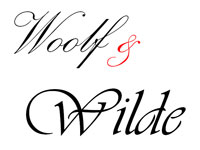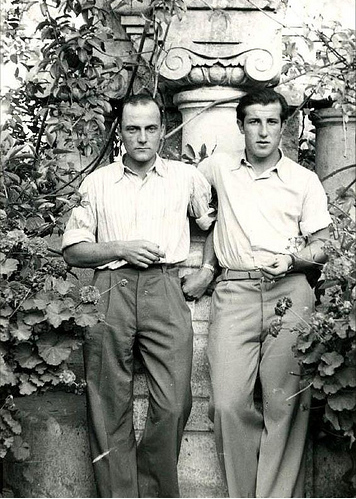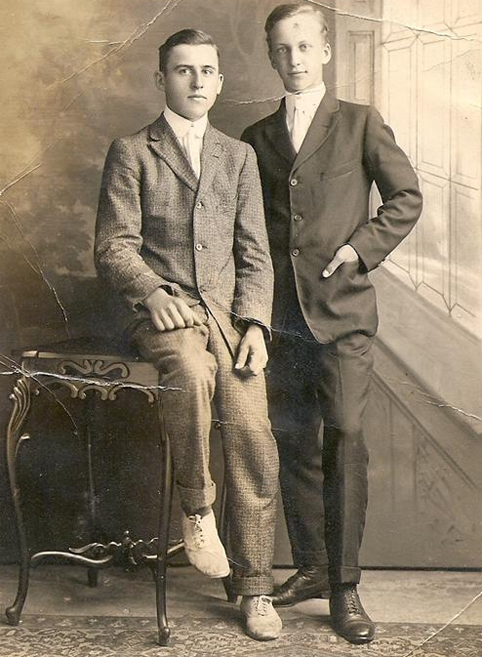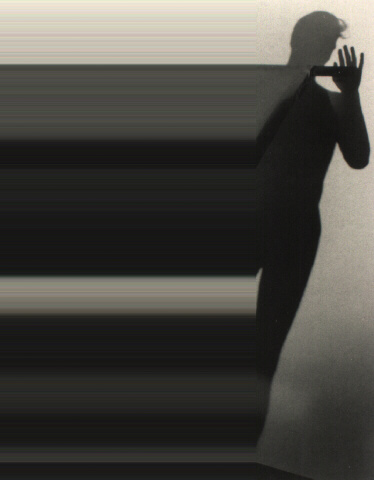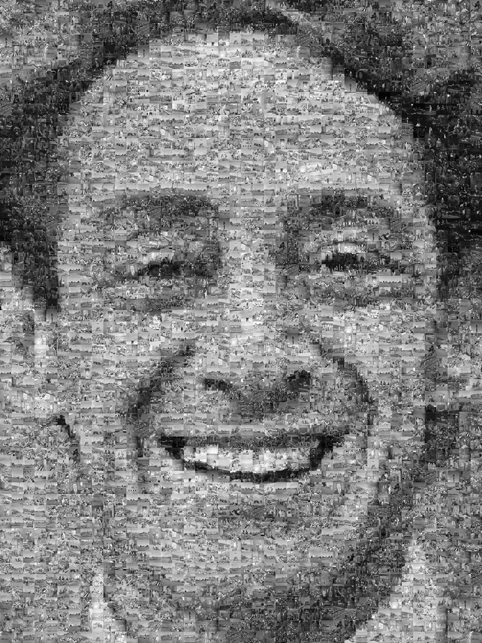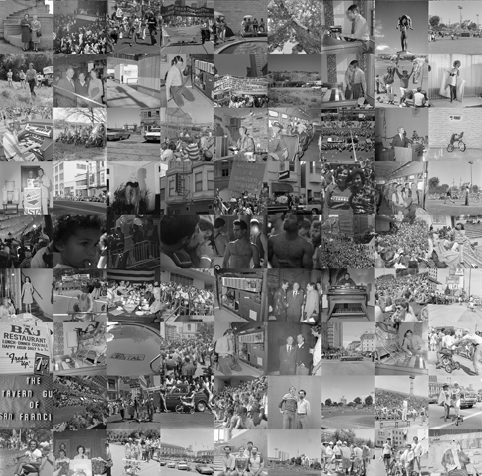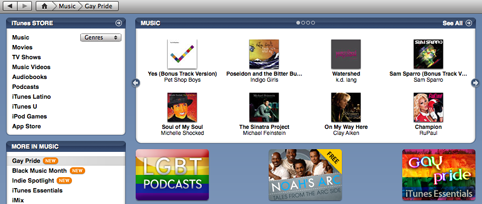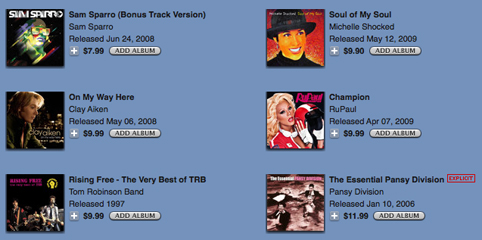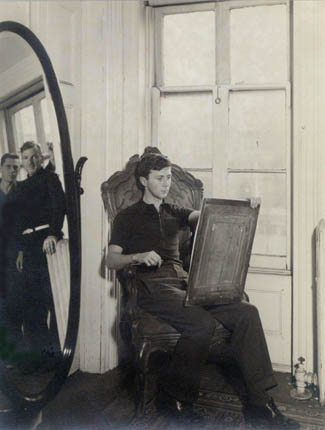A light-bulb memory of a moment which revealed the real me to others — and to myself.
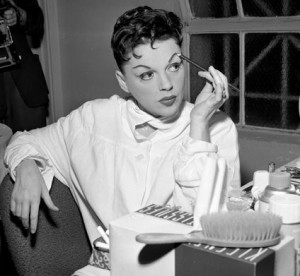
Rummaging through a box of books in the garage one day when I was 12 years old, I stumbled across a copy of the paperback edition of ‘Weep No More, My Lady,’* a biography of Judy Garland. Several forces drew me to the book, not the least of which were the drama of the cover photo and the melodrama of the title. Upon sighting the found treasure, a little gay gene in my homo-adolescent brain shouted “Judy Garland, YES!!!” I had to read it.
At twelve I was by no means the Judy fanatic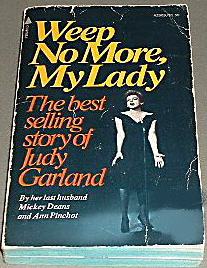 I would one day grow to be, though of course I knew Dorothy Gale from ‘The Wizard of Oz.’ I had seen Judy a few times on the ‘Mike Douglas Show’ and ‘Merv Griffin’ and loved her self-deprecating wit and boozy charm. I’m sure there must have been a Judy album or two in amongst the hundreds of LP records my mother collected, though I honestly don’t remember listening to Judy Garland at that age. Whatever the driving force was, I carried the book off to my room to feed my burning curiosity.
I would one day grow to be, though of course I knew Dorothy Gale from ‘The Wizard of Oz.’ I had seen Judy a few times on the ‘Mike Douglas Show’ and ‘Merv Griffin’ and loved her self-deprecating wit and boozy charm. I’m sure there must have been a Judy album or two in amongst the hundreds of LP records my mother collected, though I honestly don’t remember listening to Judy Garland at that age. Whatever the driving force was, I carried the book off to my room to feed my burning curiosity.
If you can picture my bedroom circa 1974, it was 1970s-fabu and completely decorated by yours truly. I was immensely interested in interior design then and used money I made babysitting to outfit my teen bachelor pad.
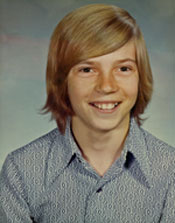
- Me at age 12
The tufted faux-leather swivel chair, acrylic dome lamp atop the canary-yellow parsons table, and gold-veined mirror tiles applied to the “accent wall” made a statement I hoped David Cassidy would approve of. In one corner, set at an angle, was a mini bar my mom helped me build from unfinished furniture which we covered in chocolate brown stamped-vinyl tile. To all of this, add a stereo, gold shag carpeting, touches of macrame, and a white fur bed spread. In short, it was a perfect environment for reading ‘Weep No More, My Lady.’
One afternoon while my brother was out tossing a football with the neighbors and my 4-year-old sister was off playing, I was sequestered in my room drinking hot tea (that’s what I kept in the mini bar) and reading tidbits about Judy’s career and her final months with her handsome 35-year-old husband whose job was promoting disco night clubs. Someone gave a courtesy knock while simultaneously opening the door. It was Dad.
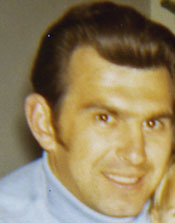
- Dad, 1970s
I don’t know what my father wanted, but I do remember that he, who was imposing in every sense of the word, looked at the book in my hand, paused, looked at me, gave a few seconds of life-threatening silence while pondering his next move and then asked, “Why are you reading that book?”
As often happens when you’re caught being gay without really realizing that’s what you were doing, my face flushed, my ears got red and hot, and I gave the illuminating answer most kids use when they don’t really want to talk about it: “I don’t know.”
“You’re reading it because your mother read it,” he says, which I took to be an indictment of the utter lack of masculinity attached to a biography of Judy Garland.
In that moment, I quickly surmised that I had been “found out.” As what, I wasn’t entirely sure, but I had a pretty good idea. “I guess I’m just interested in it,” was all I could finally get out. With that, Dad turned around, walked out and shut the door, completely dropping the original and unknown reason for his visit.
As if my bedroom decor wasn’t signal enough, I now see that my reading a biography of Judy Garland in 1974 at the age of twelve sent my dad’s gaydar off the dial. That day, while the boys on the street were playing football, I was was being outed by Judy Garland.
Note: A version of this story was previously published on the author’s former blog, Worth Repeating.
Tagged: coming out, gay, Judy Garland, Kenneth Hill, memoir, Weep No More My Lady
